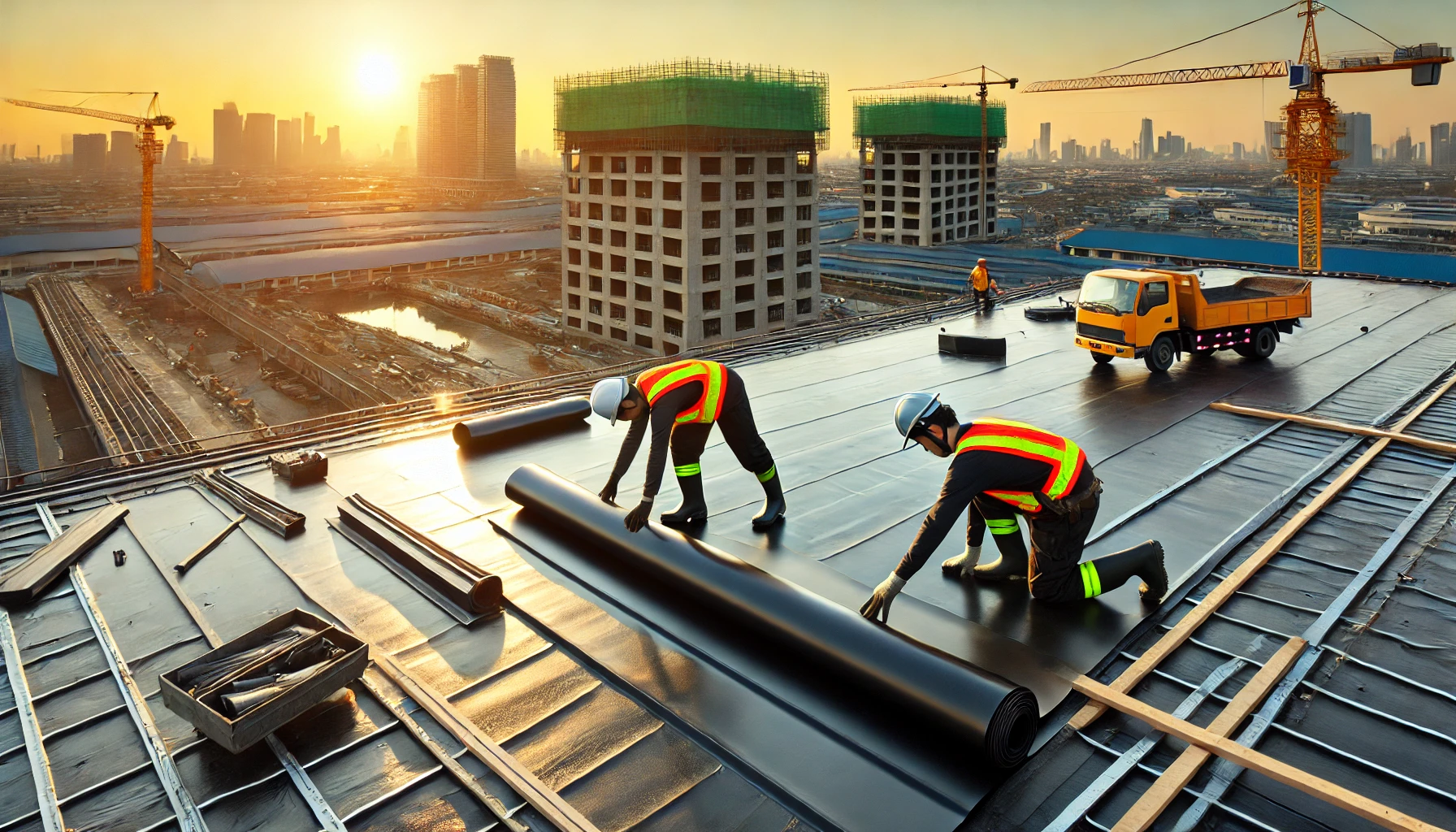Introduction
Description About Modern Waterproofing Methods
Liquid Waterproofing Membrane
Liquid waterproofing membrane is a modern method that involves applying a liquid membrane to the surface, which then cures to form a seamless, rubber-like waterproof layer. This method is highly flexible and can be applied to various surfaces, including roofs, balconies, and basements.
Advantages:
- Seamless Application: The liquid membrane creates a continuous barrier without seams or joints, reducing the risk of leaks.
- Flexibility: It can adapt to the movement of the building, preventing cracks and maintaining its integrity over time.
- Durability: Provides long-lasting protection against water infiltration, UV rays, and harsh weather conditions.
Bituminous Waterproofing
Bituminous waterproofing involves using bitumen-based materials to create a waterproof layer. This method is commonly used for roofing applications and can be applied in the form of sheets or a liquid membrane.
Advantages:
- Strong Adhesion: Bituminous materials adhere well to various substrates, ensuring a robust waterproof barrier.
- Cost-Effective: It is a relatively economical option for waterproofing large areas.
- Versatile Applications: Suitable for a wide range of applications, including roofs, basements, and foundations.
Cementitious Waterproofing
Cementitious waterproofing uses cement-based products to create a waterproof barrier. These products are mixed with water and applied to surfaces such as concrete and masonry.
Advantages:
- Ease of Application: Cementitious products are easy to mix and apply, making them a popular choice for DIY projects and professional applications.
- Compatibility: Ideal for use on concrete and masonry surfaces, providing a strong bond and effective waterproofing.
- Durability: Offers long-lasting protection against water ingress and is resistant to environmental conditions.
Polyurethane Waterproofing
Polyurethane waterproofing involves applying a liquid polyurethane membrane that cures to form a flexible, seamless waterproof layer. This method is particularly effective for areas with high levels of moisture and movement.
Advantages:
- High Flexibility: Polyurethane membranes can stretch and contract with the building, preventing cracks and leaks.
- Strong Adhesion: Provides excellent adhesion to a variety of substrates, including concrete, wood, and metal.
- Chemical Resistance: Resistant to a wide range of chemicals, making it suitable for industrial applications.
EPDM Rubber
EPDM (ethylene propylene diene monomer) rubber is a synthetic rubber membrane used for waterproofing roofs, terraces, and other flat surfaces. It is known for its exceptional durability and flexibility.
Advantages:
- Long Lifespan: EPDM membranes can last for several decades, offering extended protection against water ingress.
- UV Resistance: Highly resistant to UV radiation, preventing degradation over time.
- Environmental Benefits: EPDM is a sustainable material that can be recycled at the end of its life cycle.
Crystalline Waterproofing
Crystalline waterproofing involves using crystalline compounds that react with water and concrete to form insoluble crystals, blocking water pathways and sealing cracks. This method is commonly used for concrete structures such as basements, tunnels, and water tanks.
Advantages:
- Permanent Solution: Crystalline waterproofing provides a long-lasting, self-healing solution for concrete structures.
- Deep Penetration: The crystalline compounds penetrate deeply into the concrete, ensuring comprehensive protection.
- Environmentally Friendly: Non-toxic and safe for use in potable water applications.
Conclusion
Modern waterproofing methods offer superior protection against water damage, ensuring the longevity and durability of buildings. Vancouver Grand Construction Inc. is dedicated to using these advanced techniques to provide reliable and effective waterproofing solutions for their clients. By incorporating liquid waterproofing membranes, bituminous waterproofing, cementitious waterproofing, polyurethane waterproofing, EPDM rubber, and crystalline waterproofing, the company ensures that every project is well-protected from the elements. Embracing these modern waterproofing methods not only enhances the structural integrity of buildings but also provides peace of mind to property owners.
Contact Us
We are always happy to discuss your projects and offer the best solutions. Learn more about our services and modern construction technologies on our website.
